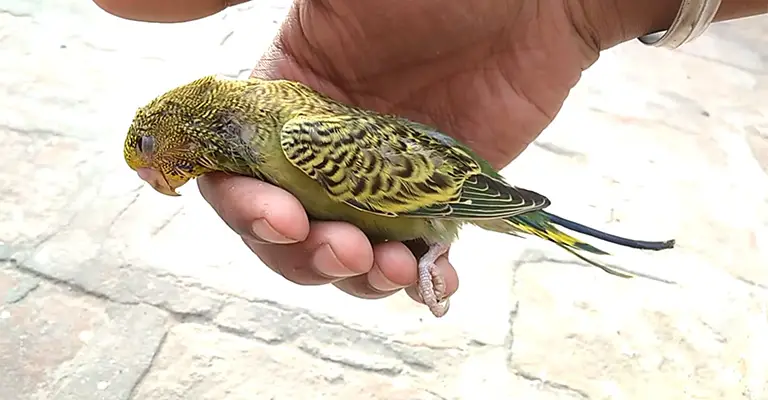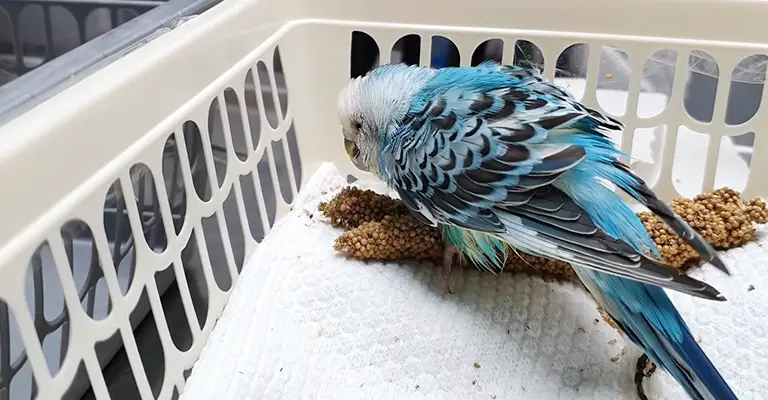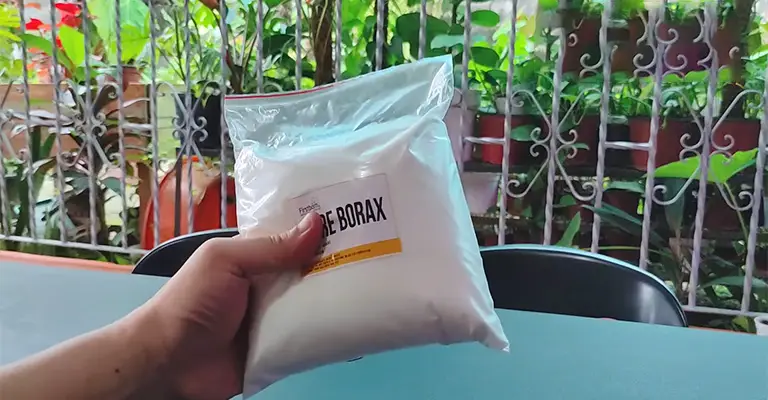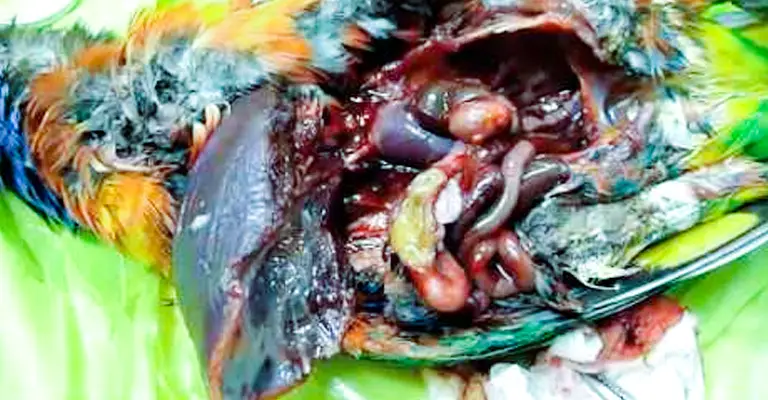Parakeets have become popular recently as pet birds because of their small size, vibrant colors, and playful personalities. Also, they are relatively easy to care for, making them a popular choice for first-time bird owners.
However, despite their popularity, the sudden death of a parakeet can be a devastating experience for any pet owner. It becomes even more difficult to understand and cope with when the death appears to be sudden and without warning.
In this blog post, we will explore some of the possible causes of sudden parakeet death and offer guidance on how to prevent it in the future.
We also express our condolences to those who have recently lost a pet parakeet and understand that it is never easy to say goodbye to a beloved companion.

Possible Causes of Sudden Parakeet Death
Sudden parakeet death can have various causes, and it’s essential to understand the potential factors that can contribute to this unfortunate event.
While the following list is not exhaustive, it highlights some possible causes of sudden parakeet death:
Underlying Medical Conditions or Diseases
Parakeets, like any living creature, can suffer from various medical conditions or diseases. Viral or bacterial infections, tumors, and organ failure are some examples.
These conditions may not always present obvious symptoms until it is too late, emphasizing the importance of regular veterinary check-ups and routine bloodwork to detect and treat potential health issues early on.
Household Toxins and Hazards
Exposure to household toxins and hazards can pose a significant risk to parakeets. Scented products, cleaning detergents, smoke, and other chemicals can be harmful to birds and may cause respiratory issues, organ damage, or even death.
Being aware of these hazards and taking precautions to minimize a parakeet’s exposure is crucial for their well-being.
Poor Diet

A balanced diet is vital for a parakeet’s health. Feeding them a diet lacking essential nutrients can lead to malnutrition and other health problems, potentially resulting in sudden death.
Providing a varied and nutritious diet that includes a combination of pellets, fresh fruits, vegetables, and occasional treats can help prevent such issues.
Improper Cage Setup
The cage setup plays a significant role in a parakeet’s overall well-being. Inadequate cage spacing or improper placement of perches, toys, or feeding dishes can lead to injuries or stress on the bird.
Ensuring that the cage is appropriately sized, safe, and stimulating can help prevent accidents and promote a healthy environment.
Toxic or Harmful Substances

Parakeets are curious creatures, and they may come into contact with substances that are toxic or harmful to them.
Some common examples include certain houseplants, lead-based materials, pesticides, and even some foods that are safe for humans but toxic to birds.
Keeping the environment free from such substances and being cautious about potential dangers is essential.
Trauma or Accidents
Accidents or traumatic incidents can occur, leading to sudden parakeet death. These may include falls, collisions, or getting caught in tight spaces.
Providing a safe and bird-friendly environment, ensuring supervised out-of-cage time, and minimizing potential hazards can reduce the risk of such accidents.
Importance of an Autopsy

An autopsy, also known as a necropsy, is a valuable tool in determining the cause of death in a pet parakeet.
An avian veterinarian with specialized training in avian anatomy and pathology can perform an autopsy and examine the internal organs, tissues, and systems of the bird.
It can provide insight into the underlying cause of death, such as a disease or infection, organ failure, or exposure to toxins.
This information can be important for both the pet owner, who may want closure and understand about their pet’s death, as well as for future pet birds, to prevent similar deaths from happening.
However, performing an autopsy on a small bird like a parakeet does have its limitations and challenges. Due to the small size of the bird, certain structures may be difficult to locate and examine.
Additionally, certain tests that can be performed on larger animals may not be possible on a parakeet. Despite these limitations, an avian veterinarian can still provide valuable information and insight through an autopsy.
If an autopsy is being considered, it is important to properly store the deceased parakeet’s body until it can be examined by a veterinarian.
Ideally, the bird should be refrigerated at a temperature of 40°F or lower and should be examined within 3 days of death.
It’s important to contact an avian veterinarian as soon as possible so that the body can be examined before decomposition sets in.
Besides, it may not always be possible to determine the exact cause of death, especially if the parakeet was already showing signs of illness. But it can be a great help to prevent similar deaths from happening again in the future.
Prevention and Future Considerations
Prevention is key when it comes to ensuring the well-being of your parakeet and minimizing the risk of sudden death. Here are some preventive measures and future considerations to keep in mind:
Regular Veterinary Check-ups
Schedule routine veterinary check-ups for your parakeet, even if they appear healthy. Regular examinations and bloodwork can help detect any underlying health issues early on and allow for prompt treatment.
Provide a Balanced Diet
Offer a well-balanced and nutritious diet to your parakeet. Consult with a veterinarian or avian nutritionist to determine the appropriate food and portion sizes for your bird’s specific needs.
A varied diet that includes pellets, fresh fruits, vegetables, and occasional treats will help ensure they receive the necessary nutrients.
Create a Safe Environment
Make sure your parakeet’s living environment is safe and free from potential hazards. Remove toxic plants, secure windows, and doors to prevent escapes, and keep them away from chemicals, smoke, and other harmful substances.
Cage Setup and Enrichment
Set up the parakeet’s cage appropriately, providing enough space for movement and comfortable perches for resting. Include stimulating toys, swings, and puzzle feeders to keep them mentally and physically engaged.
Supervised Out-of-Cage Time
Allow your parakeet supervised time outside of the cage to exercise and explore, but ensure the area is bird-proofed and free from dangers like open windows, fans, or other pets.
Educate Yourself
Continually educate yourself about parakeet care and avian health. Stay updated on current research, guidelines, and best practices to provide the best possible care for your feathered friend.
Monitor Behavior and Health
Pay attention to your parakeet’s behavior, eating habits, droppings, and overall appearance. Any changes in behavior or physical condition should be promptly addressed by seeking veterinary care.
Social Interaction
Parakeets are social birds and thrive on companionship. Consider providing your parakeet with a compatible companion to prevent loneliness and promote mental well-being.
Educate Others
Share your knowledge about parakeet care and the potential risks of household toxins with family members, friends, and other bird owners to help create a safer environment for all birds.
FAQs
Parakeets are social birds and thrive in the company of other birds. However, they can also adapt to living alone with proper socialization and interaction with their human caretakers. Prolonged loneliness or lack of interaction can lead to stress and depression in parakeets, which can negatively impact their overall well-being.
Some signs that a parakeet may be dying include weakness, loss of appetite, lethargy, difficulty breathing, and changes in droppings. However, it’s important to keep in mind that birds often hide symptoms of illness and it may not always be possible to know that a bird is dying until it’s too late.
Regular veterinary check-ups and routine bloodwork can help detect and treat potential health issues early on. Proper diet, cage setup, and hygiene can also help prevent illness. Avoiding exposure to toxins and hazards in the home, and finding a reputable breeder when getting a new bird can also prevent illness.
Yes, parakeets can die from stress. Stress can be caused by a variety of factors such as poor diet, improper cage setup, lack of socialization, and exposure to toxins and hazards. Stress can also be caused by changes in the bird’s environment or routine. It can lead to decreased immunity, which can make the bird more susceptible to illness.
No, once a parakeet has died, recovery is not possible. The goal is to prevent sudden death by taking proper care of the parakeet and detecting and treating any potential health issues early on.
Wrapping Up
The sudden death of a pet parakeet can be a devastating experience for any pet owner. The causes of sudden death can range from underlying medical conditions or diseases, exposure to household toxins and hazards, poor diet, and improper cage setup.
Regular monitoring of a parakeet’s health and behavior, as well as regular veterinary check-ups and routine bloodwork, can help detect and treat potential health issues early on.
Also, proper care, diet, and cage setup, along with regular veterinary check-ups, can help prevent sudden death in parakeets.
We encourage readers to share their own experiences and thoughts on the topic and offer our condolences and support to those who have recently lost a pet parakeet.
Thank you a million times for staying with us.